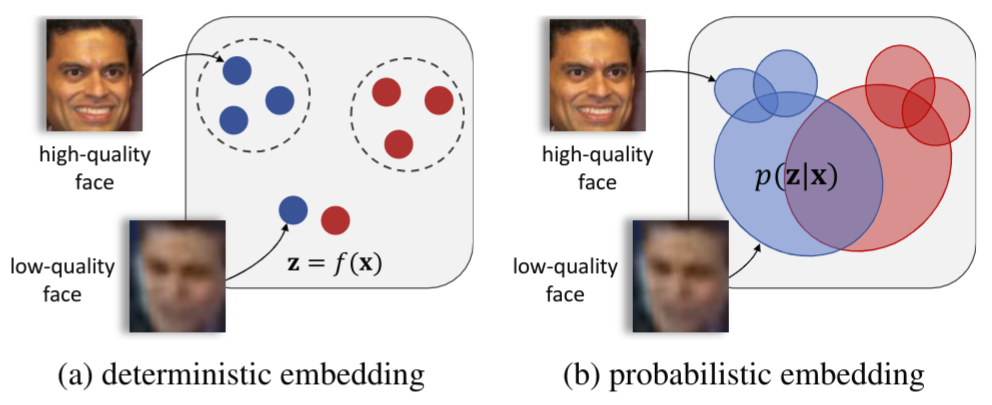Probabilistic Face Embeddings
Embedding methods have achieved success in face recognition by comparing facial features in a latent semantic space. However, in a fully unconstrained face setting, the facial features learned by the embedding model could be ambiguous or may not even be present in the input face, leading to noisy representations. We propose Probabilistic Face Embeddings (PFEs), which represent each face image as a Gaussian distribution in the latent space. The mean of the distribution estimates the most likely feature values while the variance shows the uncertainty in the feature values. Probabilistic solutions can then be naturally derived for matching and fusing PFEs using the uncertainty information. Empirical evaluation on different baseline models, training datasets and benchmarks show that the proposed method can improve the face recognition performance of deterministic embeddings by converting them into PFEs. The uncertainties estimated by PFEs also serve as good indicators of the potential matching accuracy, which are important for a risk-controlled recognition system.
PDF Abstract ICCV 2019 PDF ICCV 2019 AbstractDatasets
Results from the Paper
 Ranked #1 on
Face Verification
on IJB-C
(training dataset metric)
Ranked #1 on
Face Verification
on IJB-C
(training dataset metric)







 LFW
LFW
 CASIA-WebFace
CASIA-WebFace
 MS-Celeb-1M
MS-Celeb-1M
 IJB-C
IJB-C
 MegaFace
MegaFace
 IJB-A
IJB-A